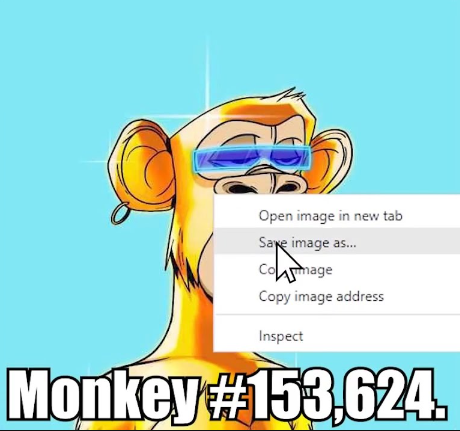

Share our video teaser
NFTs in Gaming: A New Era of Ownership and Transparency
Jean-Baptiste BriantChatGPT3.5

The Place of NFT in Video Games: Dispelling the Myth of Pay-to-Win Models
TL;DR
NFTs in video games are not a gateway to pay-to-win models. Greedy game studios can already implement pay-to-win mechanics without NFTs. NFTs have the potential to benefit both players and studios by creating new revenue streams and sharing profits. Pay-to-fast models should be carefully implemented to avoid becoming pay-to-win, with studios selling resources instead of direct advantages. MMOs already have pay-to-fast elements because of unregulated black markets, studios should step-in to maintain balance.
Introduction
As video games continue to evolve, so do the monetization models behind them. One of the latest and most talked-about trends is NFTs, or Non-Fungible Tokens or collectibles. NFTs are digital assets that are stored on a blockchain and are unique, meaning they cannot be replicated. This technology is being adopted by the gaming industry to allow players to own in-game assets such as weapons, skins, and characters. However, there is a common claim that NFTs will incentivize game studios to create pay-to-win models. In this article, we will prove that this claim is false and that instead, NFTs will allow studios to share revenue with players.
1. Greedy studios doesn't need NFT to make pay to win
The idea that Non-Fungible Tokens (NFTs) will incentivize game studios to create pay-to-win models is a common misconception among NFT adversaries. The truth is, greedy studios don't need NFTs to make pay-to-win models. The mobile gaming industry is a prime example of this, where pay-to-win mechanics are inherent to the ecosystem driven by short term revenue. Game studios aim to profit by any means necessary, and they have no qualms about happily tricking vulnerable populations, such as children, into spending more money. In fact, many studios use psychological dark patterns to manipulate players into paying more.
A prime example of this is Diablo Immortal, a mobile game that uses pay-to-win mechanics to its advantage. The game allows players to purchase gems, which can be used to acquire items that would be impossible to acquire without paying. This creates an unfair advantage for paying players, and those who are unwilling or unable to pay are left at a disadvantage. This kind of behavior is unacceptable, and it's important for gamers to stand up against it.
However, it's also important to note that greed makes pay-to-win models, not NFTs. The use of NFTs in video games actually has the potential to benefit both players and game studios. By allowing players to own in-game assets, such as weapons, skins, and characters, NFTs can create a new revenue stream for game studios. This revenue can then be shared with players, creating a win-win situation for everyone involved.
2. NFT will make de facto any game a pay to fast
Pay-to-win (P2W) and pay-to-fast (P2F) are two different concepts in the gaming industry. P2W is the practice of buying a competitive advantage that cannot be obtained without paying, while P2F allows players to progress faster without having to put in the time and effort required to advance through the game. For instance, hard-working individuals with limited time to play may opt for P2F to keep up with other players who have more time to invest in the game. However, some game studios intentionally make the gaming experience worse by incorporating too much grind and frustration to push players into paying for advantages. This is a dark pattern that aims to exploit players' impatience and eagerness to advance. However, there are ways to prevent pay to fast from becoming pay to win. For instance, the studio should avoid selling items directly and instead sell resources to craft them. This ensures that all items are obtainable in-game, making it impossible to buy a competitive advantage. Additionally, the studio should refrain from selling boost, skills, or any other crap that can provide an unfair advantage over other players.
Another crucial aspect to consider in an NFT-based MMO is the PvP system. It is essential that the PvP system is leveled and that no paying players can gain a competitive advantage over non-paying players. This ensures that the game remains fair and enjoyable for everyone.
In conclusion, pay to fast is a personal choice that should not have any implication on other players. However, game studios must ensure that they do not exploit this model to turn it into a pay to win model. By selling only resources and not items, leveling the playing field in PvP, and avoiding selling any boosts or skills, studios can create an enjoyable and fair game for everyone, regardless of how much they pay.
3. MMOs are already all pay to fast
The third point to consider is that MMOs are already pay to fast. It is a common phenomenon that every MMO has a black market, which creates an external force on the in-game economy. Unfortunately, the game studios refuse to control the black market, leaving the economy at the mercy of gold farmers. This is a major issue as it creates an imbalance in the game's economy and affects the game's fairness. However, game studios should take control of the pay-to-fast mechanisms and integrate them into the game design. Balancing a MMO economy while controlling 100% of its economy is already extremely difficult, and the unregulated black market adds another layer of complexity. Therefore, it is crucial for the game studios to take charge of the pay-to-fast mechanics, regulate them and integrate them properly into the game design. This would help create a more balanced and fair economy in the game, making it enjoyable for all players.
4. Game studios are the one who doesn't want NFT in games
Game studios have been hesitant to integrate NFTs into their games, primarily due to the fact that they would have to share the income from new paying customers with the old ones who can now sell their items. This sharing of profits would result in less revenue for the game studios, which is a major deterrent for them. However, as a player, I believe that my time investment should be valorized, and I should be able to benefit from my hard work and dedication to the game. Many players are happy to sell their old accounts when they stop playing the game, and NFTs can provide a similar opportunity for them to benefit from their in-game achievements.
Moreover, NFTs can add a new dimension to the player-driven economy of MMOs. Many MMO players enjoy analyzing the player-driven economy and finding the best opportunities, such as in EVE online where players spend countless hours trying to take advantage of other players on the economic side. This creates a form of "economical PvP" where guilds fight for supremacy. With NFTs, players can have even more control over the economy, as they would be able to sell their items and resources to other players for a fair price, rather than relying solely on the game studio's economy. This can lead to a more dynamic and diverse player-driven economy, with more opportunities for players to specialize in different economic roles such as traders, craftsmen, and merchants.
5. Game studios should keep that in mind
To create a healthy gaming environment, game studios should take responsibility for the wellbeing of their players, particularly when it comes to children and excessive spending. It's essential to have comprehensive tools integrated into the game UI for parents to control the spending behavior of their children.
Additionally, game studios should focus on making the gaming experience great for all players, regardless of whether they are paying or not. Non-paying players can be extremely skilled and dedicated to the game, and they often serve as ambassadors for the community. It's important to avoid P2W at all costs, as it will ruin the gaming experience for everyone and lead to a toxic environment. Lastly, game studios should not be afraid to share revenues with players, as they are not just consumers but also the population of the world that the studio created.
Being greedy and solely focused on profits can harm the game's community and drive players away. Instead, a fair and collaborative approach can foster a healthy gaming environment and a loyal player base.



